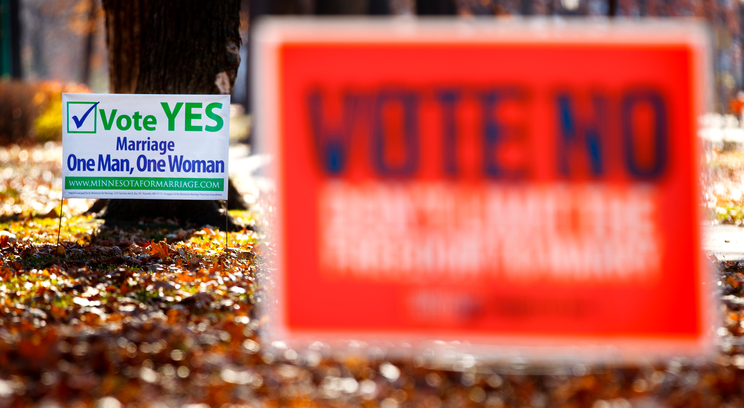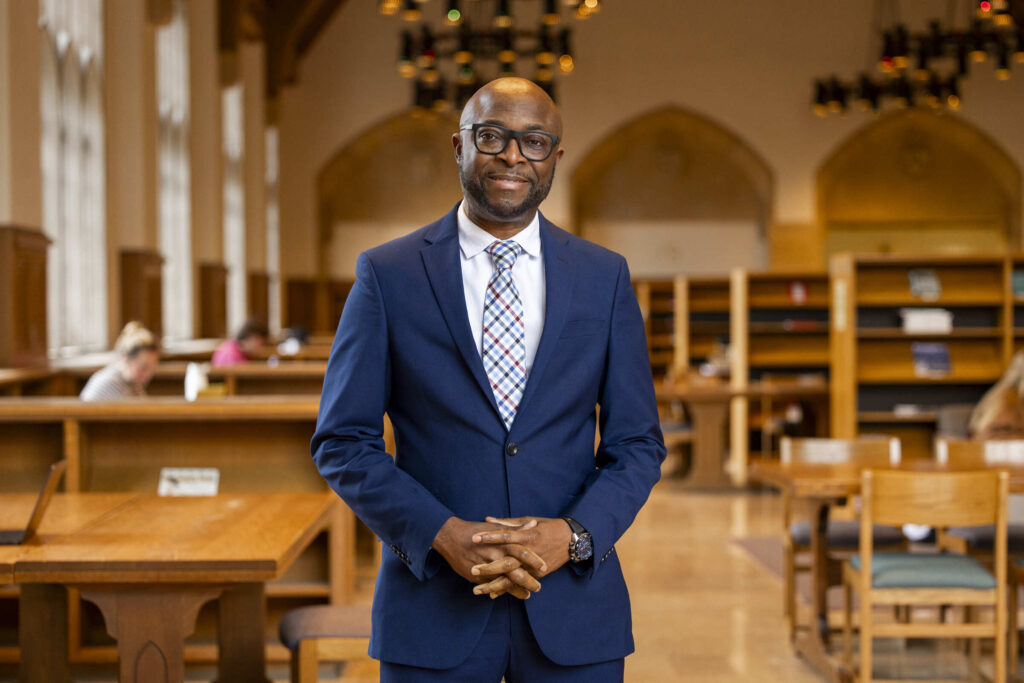Every election cycle and its ubiquitous lawn signs provide a perfect opportunity not only to reflect on one’s political and philosophical beliefs but also to wonder why anyone would hold views contrary to one’s own. I like to think of this as an opportunity to check on one’s state of open-mindedness.
Coincidentally, fellow philosopher Gordon Marino, a professor of philosophy and director of the Hong Kierkegaard Library at St. Olaf College, has written an editorial for the Pioneer Press about the challenge of being open-minded. While I tend to agree with his basic line of thought – that it is indeed more challenging than we tend to think to be open-minded – the philosopher in me also wondered about whether it was possible to be open-minded about being open-minded and whether that entailed the possibility of being close-minded. Of course, I realize that it also is possible to be close-minded about being open-minded – but that is a completely different matter.
I mention this because some of my colleagues at St. Thomas – especially those with liberal, Democratic and progressive leanings – tend to think that I am close-minded politically, if not universally, because I tend to hold views (at least for the sake of argument) that they find, well, unenlightened and mindless.
I think that they see themselves as independent, impartial and open-minded people who come to their conclusions based on good reasons and the facts. Yet, as Marino warns us, thinking impartially – with an open mind – is not as easy as we tend to think it is, precisely because it “requires an ability to acknowledge the views that we are attached to, as well as the willingness to be triply careful about dismissing arguments that might rub our cherished positions the wrong way.” So, I started wondering if I am or could be open-minded in that way. Here’s what I discovered.
For better or for worse, I think of myself philosophically as a closet Platonist and/or “recovering” Thomist (of the strict observance) – which simply means that I tend to think things have essences – a metaphysical principle that makes a thing be the kind of thing it is (i.e., the essence of a tree makes a tree be a tree; the essence of a dog makes a dog be a dog and not a cat or some other animal), and that our knowledge and actions with regard to them is and ought to be based on this metaphysical fact.
Recently, however, I’ve begun to have serious reservations about such an essentialist view because it seems to be out of harmony with my experience and how things seem to be in the world. Or at least with how many of my colleagues see things.
I’ve begun to wonder whether the Buddha may have been right about things lacking fixed essences (i.e., the denial of my essentialist view), and reality being a function of how we see it – or how things appear to us, at least in part, because of our own conceptual habits and frameworks and our tendency to see things in a karmically determined and influenced way.
Take Olympic competition. For the life of me, I simply cannot see (because of my own karma?) how any true competitor can feel good about “winning” a silver or bronze medal. Doesn’t that just mean that they were first or second loser? As far as I see things, the point – the essence, if you will – of any competition is victory (especially if you’re keeping score). Everyone other than the winner just needs to work harder and practice more, not be recognized with a prize for losing! Many of my colleagues think I’m wrong about this, but I just can’t see the point or truth of saying someone “won a silver or bronze medal.” In my mind (and in my neighborhood) that just means you were a loser.
Assuming – for the sake of being open-minded – that I might be wrong about Olympic medals and what the essence of competition is, led me to wonder about just what I think a marriage is (and even if it is the kind of thing that might have an essence). This is, of course, a different question from the ballot initiative Minnesota voters will face on Nov. 6 about whether a specific definition of marriage should be enshrined in the state constitution. I thought I knew what marriage was because I’ve been in one for the last 21 years. But some of my colleagues think I’m wrong about that too. Marriage, so they say, is essentially about love and commitment, and not the sex of the individuals who enter into it.
Lastly, let’s consider one of the ongoing partisan talking points for this cycle: Who gets credit for building things? I definitely know the Buddha was right about interdependent arising – that “things,” understood as processes, events and happenings, arise from causal interactions involving myriad other processes, events and happenings, and that simple atomistic and dyadic cause-effect talk is a colossal over-simplification and falsification. But like Saint Augustine, I’m willing to take the blame for my own mistakes. My real problem, I guess, is seeing how I could have made any in the first place.
All of this has led me to wonder that perhaps the real essence of being open-minded is being able to see that you might just be wrong even when you think that’s impossible! I doubt it – but I could be wrong – maybe.
Steve Laumakis is a professor of philosophy and director of the Aquinas Scholars Honors Program.








